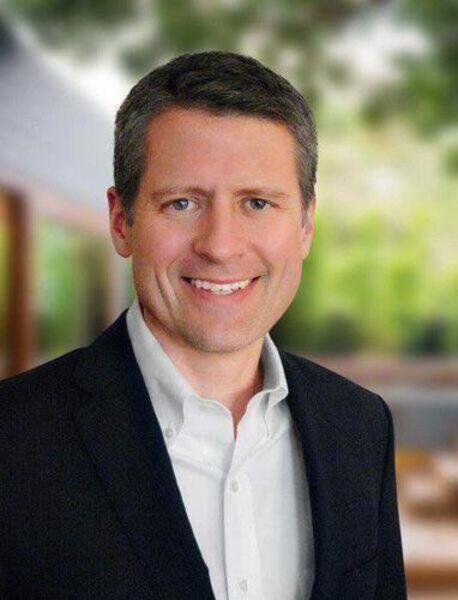FOWLER: Taking the Four-Way Test
Published 9:30 am Sunday, May 1, 2022

- Curt Fowler
“Lying lips are extremely disgusting to the Lord, But those who deal faithfully are His delight.” – Proverbs 12:22 (amplified)
I started Fowler & Company in March of 2011 with a vision to help Christian business leaders build better businesses that bring glory to God.
So, I want everything I do at work and at home to bring glory to God. This brings up the topic for today’s article – business ethics.
This is a tough topic. I am often amazed to find strong Christians who can thoroughly disagree on what the ethical answer is to a particular business situation. I don’t want to be on the wrong side of an ethical question and it is becoming clear to me that good Christian people can disagree on these things.
Since we know that people will often disagree on what the ethical (God-honoring) choice is, I have found that the best solution is to discuss business ethics openly and honestly inside your organization and outside.
If your goal is to create an organization full of people who will make good ethical decisions, you must discuss ethics, honor examples of strong ethics, learn from ethical mistakes and always make time to discuss situations that require difficult decisions.
In my Googling for good answers to ethical dilemmas for Christians, I ran across Rotary’s Four-Way Test. I have never been a Rotarian but my dad was and I remember seeing this little plaque on his desk that had the Four-Way Test written on it.
The test has always intrigued me. Could it be a great tool to help your organization make better ethical choices? Let’s dive into the Four-Way Test and see! I’ll be quoting from an article written in 2017 by Mark DiGiovanni for Rotarians.
The Four-Way Test was originally drafted by Herbert Taylor in 1932. Taylor was a member of the Rotary Club of Chicago and had been asked to take over the near-bankrupt Club Aluminum Company.
Taylor created the Four-Way Test as a code of conduct for that business. DiGiovanni writes that Club Aluminum applied the test to all of its business decisions. It declined business that failed to meet the test and thrived as a result.
Rotary International adopted the Four-Way Test in 1943. The Four-Way Test starts with a preamble and then asks four questions. Here is how it goes.
Of the things we think, say or do…
– First, Is it the Truth?
– Second, Is it Fair to all concerned?
– Third, will it build Goodwill and Better Friendships?
– Fourth, will it be Beneficial to all concerned?
Is it the Truth?
Yikes. It feels like we are starting with the toughest question of the Four-Way Test. Truth is hard to come by these days. If you were not physically present and able to discuss what you saw with the parties involved, you cannot be sure you know the truth.
DiGiovanni writes that truth and facts often get confused for one another. Facts cannot be logically disputed or rejected. Facts are objective. Truth is much more subjective.
We often believe a truth based on facts we believe to be correct but then later find out the facts were not really facts. For centuries we believed the world was flat until someone brought new facts in to dispute that truth.
It is egotistical to believe that my truth is a universal truth. Everyone has a different interpretation of the facts, mixed with their experiences and beliefs that becomes their truth. I am slooooowly beginning to understand that everyone does not have to believe my truths. Everyone is responsible for coming to their own conclusions. I am responsible for acting in line with what I believe to be true.
This is where working with others gets tricky. In organizations, we must define our values as clearly as possible and discuss those tricky areas so we can all agree that our actions are based on truth, based on the best facts we can find.
Abraham Lincoln said, “The trouble with too many people is they believe the realm of truth lies within their vision.” Look at how the same news story is reported by different media outlets. The same facts are being reported on but the truths proposed by the different media are being influenced by their beliefs and biases.
We all have beliefs and biases. These are the window panes through which we interpret the world. The key is to know you have beliefs and biases and respect and listen to others’ interpretations of the facts.
We must base our truths on the best facts available and be transparent. Holding back information is never in the best interest of the truth.
That was the best introduction I could do for this topic within my word limits! We’ll dive into the other questions of the Four-Way Test next week.
We love helping leaders build great businesses. If you’d like to learn more you can check out our free resources at www.valuesdrivenresults.com/resource-library/ or give us a call at (229) 244-1559. We’d love to help you in any way we can.
Curt Fowler is president of Fowler & Company and director at Fowler, Holley, Rambo & Stalvey. He is dedicated to helping leaders build great organizations and better lives for themselves and the people they lead.
Curt and the team at FHRS help leaders build great companies through Virtual CFO, strategy, tax and accounting services.
Curt is a syndicated business writer, keynote speaker and business advisor. He has an MBA in strategy and entrepreneurship from the Kellogg School, is a CPA and is a pretty good guy as defined by his wife and five children.





